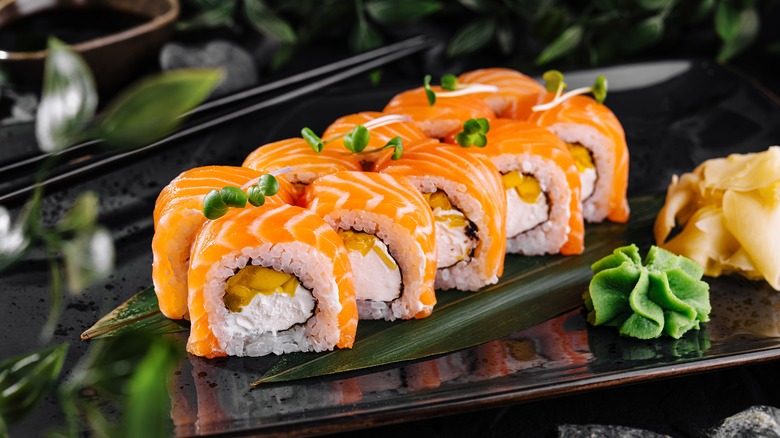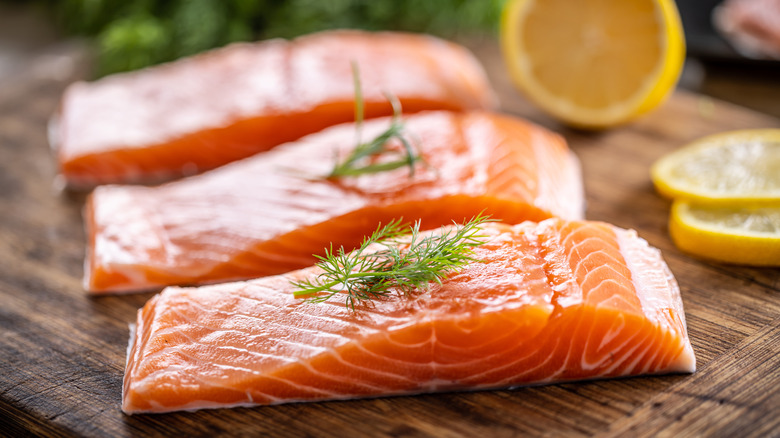Does Costco Actually Have Sushi-Grade Salmon?
Costco may just be the absolute best store to buy meat from, but does that mean they sell sushi-grade salmon? Yes and no. "Sushi-grade" is a colloquial term meaning the fish is safe to eat raw and has nothing to do with its actual quality. Provided it's been frozen for at least seven days or flash-frozen for at least 15 hours, any parasites present in the meat should be dead and the meat safe for raw consumption.
Whenever you purchase fish to eat raw (both from Costco and in general), you must be prepared to assume a certain degree of risk. This is especially important for Costco's wild-caught salmon, as they are more susceptible to picking up parasites than farm-raised varieties. There are a lot of tips on buying and handling raw seafood, but your best bet for guaranteed safe shipping and handling is to speak to Costco's butchers. Ask them about the salmon's country of origin, how it was frozen, and when it arrived at the store. Carefully evaluate the packaging information on the label, the fish's smell, and the coloring of its flesh to ensure that it is sushi-grade.
If you don't have access to a fresh source of salmon but you have a craving for sashimi or poke bowls, Costco is still your best choice. It's ranked number one in Food Republic's top 12 grocery store meat departments thanks to its quality, prices, and variety. But, occasionally, mistakes happen, so it's good to know how to identify quality salmon on sight.
How to identify salmon fit for sushi
Nothing ruins your dinner plans quite like finding out the meat you planned to eat isn't the quality you were hoping for. Fortunately, when you're shopping at chains like Costco, there are several easy ways to determine where the fish lived, its overall quality, and whether or not it's fresh enough to eat raw.
Most packaging will clearly state if salmon was wild caught or farm raised. However, if it doesn't, pigment is a great indicator. Wild salmon have significantly redder flesh thanks to their natural diets, whereas varieties hatched, raised, and harvested in farms are a paler orange. Also, farm-raised fish have higher fat contents thanks to their controlled diet and restricted movements.
If you can, smell the fish. Fresh or recently unfrozen salmon should have a mild, oceany smell, not the overwhelming scent of fish. Its flesh should be firm with just a bit of give to it, but not so much that you can deform the meat with a soft poke. If the fish is farm-raised, it should have plenty of white striations through it, showing off its fat content. Finally, check if the salmon has any quality labeling on it. Salmon is graded as premium, A, B, or C. Especially if you're eating it raw, try to find something as close to premium as you can for the best homemade salmon sushi.


